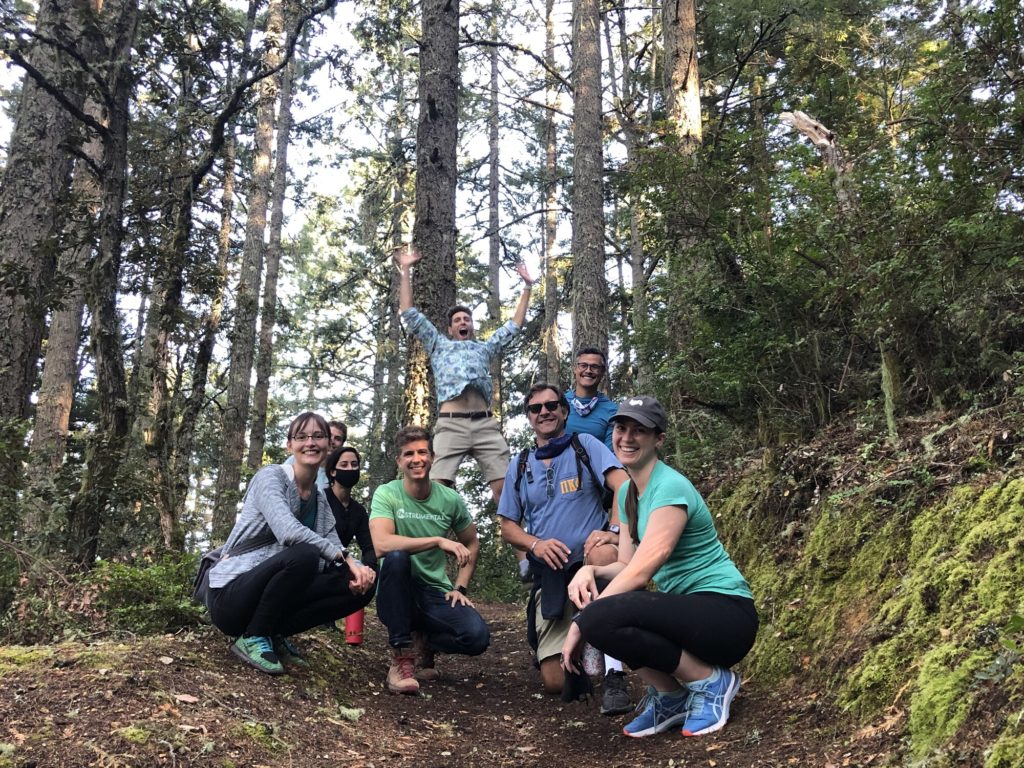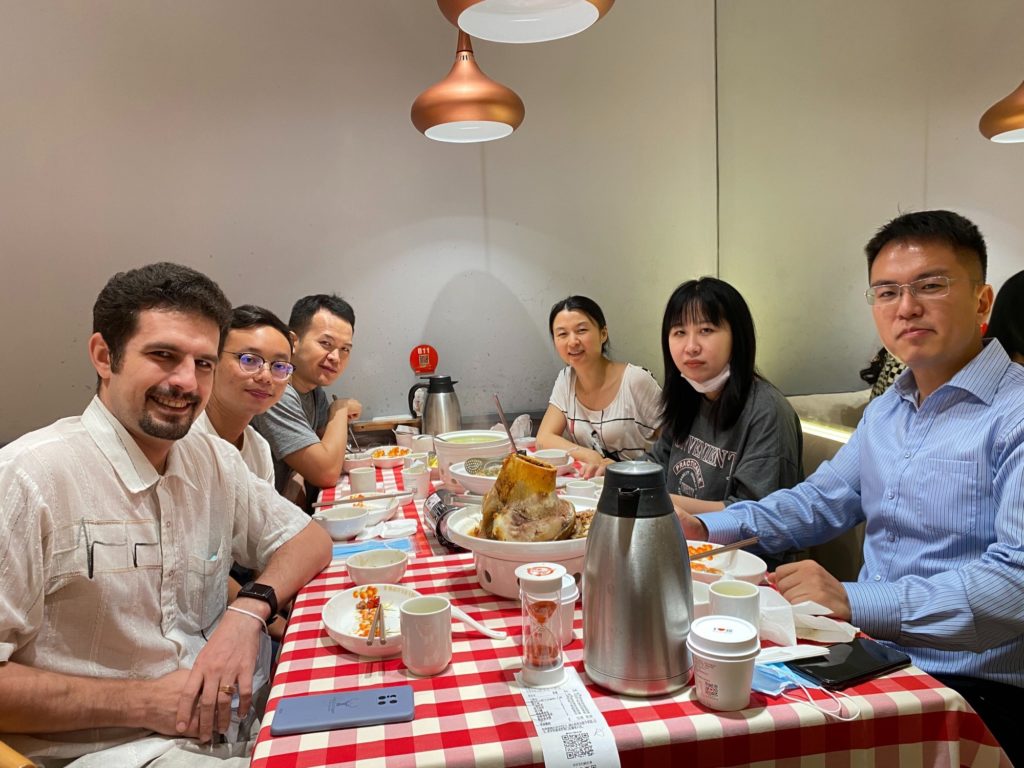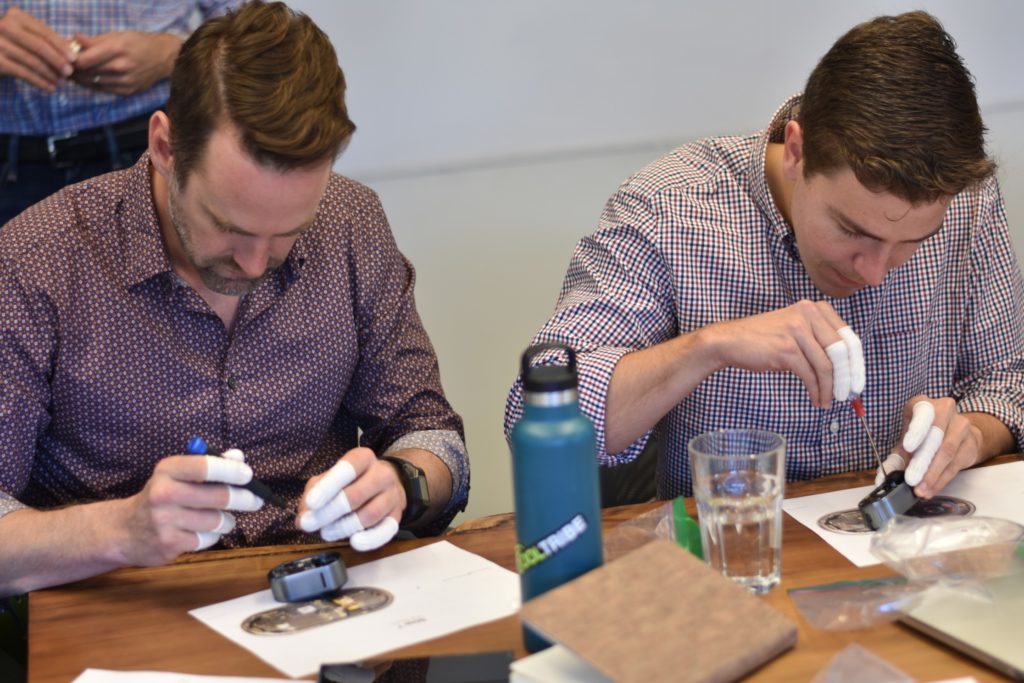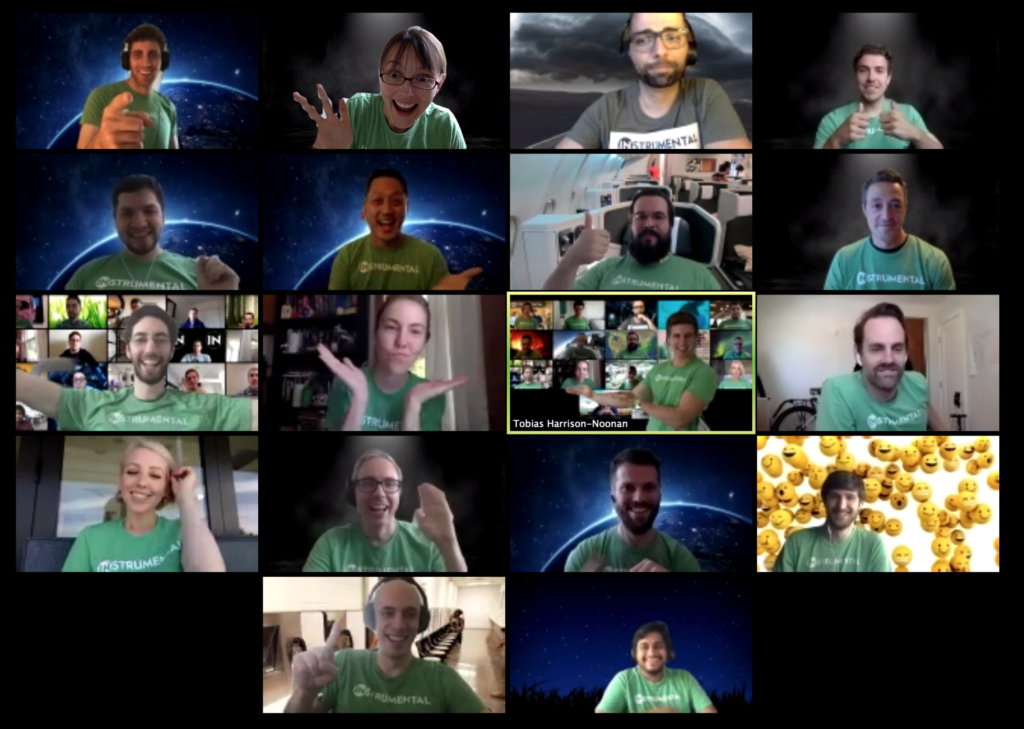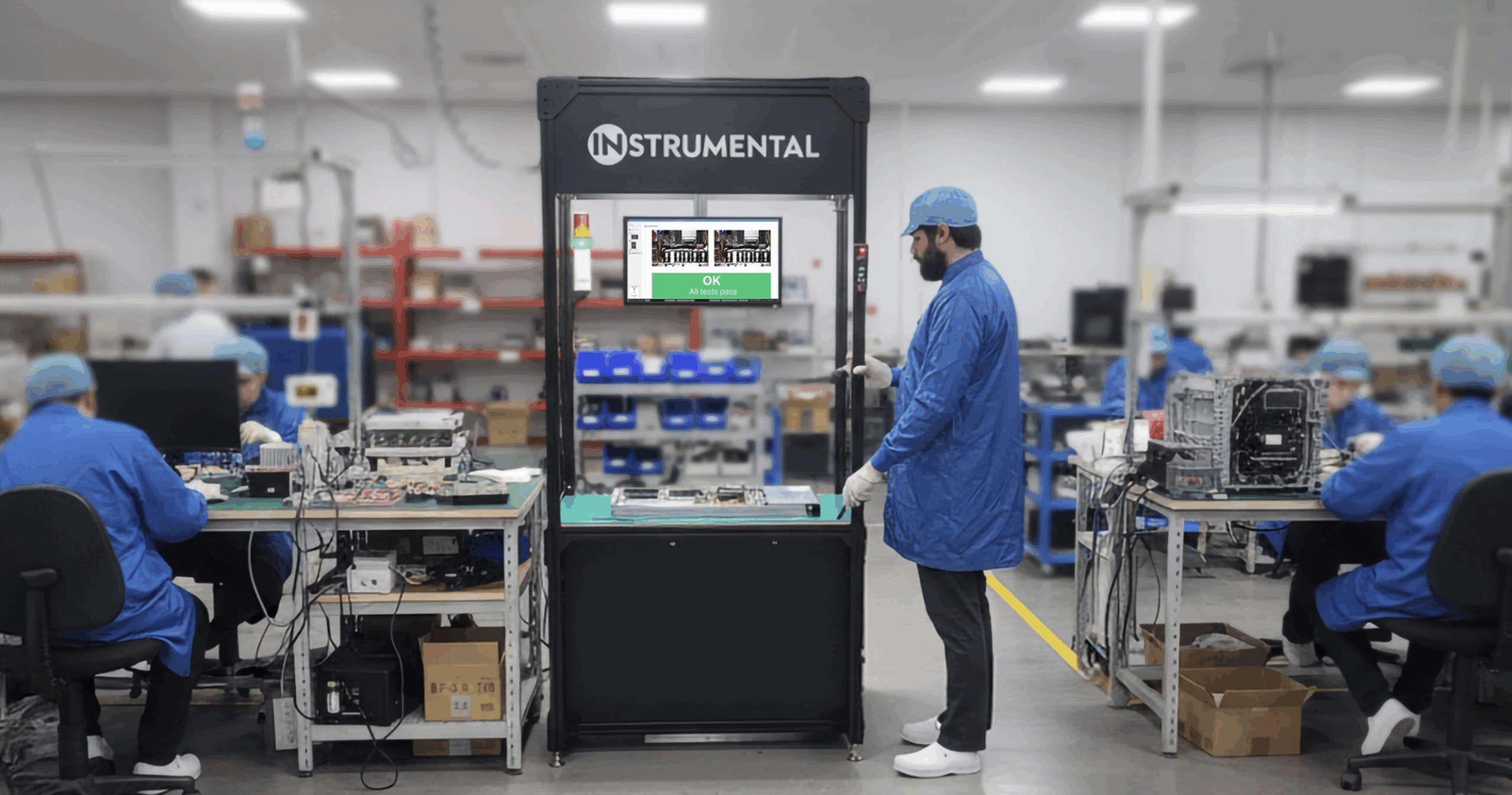Instrumental helps engineers find and fix issues on their manufacturing lines – from prototype through production. Our vision is to create an intelligent system that can continuously optimize the manufacturing process, leading to higher yields, less waste, and more time for engineers to do engineering. In short: we help companies build better.
We’re focused on optimization for our customers, and we’re also committed to optimization ourselves: how we approach challenges and how we operate. Three years ago I posted an article about Instrumental’s interview process – breaking down how our process works and how it had evolved in our first two and a half years of existence as a company. Many candidates who interview at Instrumental have mentioned the article in their interviews as helpful at understanding who we are as a company – so in the spirit of optimization and iteration, here’s our 2020 update, which includes the iteration we’ve done since 2017 as well as new updates for the pandemic realities of 2020.
Five and a half years into building Instrumental, I know the most important ingredient in building a great company is building a great team. As a woman founder, CEO, and someone who founded and runs an organization for women in STEM – the need for diversity is personal. It’s the world that I want to live in. It’s the world I strive to build at Instrumental. There are a lot of things about the trajectory of Instrumental I do not actually control (as much as founders like to tell themselves otherwise) – but one thing I do have a lot of agency over is how it feels to work here. I strive to build a place where, regardless of our stock price, employees look back and are glad they chose to spend a part of their career with us.
You can tell a lot about how a company operates and what it cares about from its interview process. Our engineering interview template was one of our first “products” as a company, and as we have grown we’ve leveraged the learnings of thousands of hours of interviews to evolve our process to maximize signal for both parties and to remove bias, all while being as efficient as possible. No process is perfect and true to our culture of continuous improvement, we reflect and iterate after every interview. We’ve also come to realize that intentionality cannot stop at the interview, and we’ve now built out a robust onboarding and training program that every Instrumental employee takes part in. We believe we need to both hire the best people and empower them to have early impact.
Like many companies in the Bay Area, we’re actively seeking passionate people to join our team. Even before the pandemic, in the best cases candidates only get small glimpses of any new company they are considering: little bits about the team, the culture, and the impact of the work. Our interview and onboarding process reveals so much about who we are – so hopefully it’s another data point candidates can use to learn more about Instrumental.
What we look for in candidates
Fundamentally, our process is designed to identify candidates who will be able to grow and thrive at Instrumental. We are a group of passionate people who naturally play to win – we seek out opportunities to be helpful (to each other, to our customers) and are always thinking about how we can do better next time. We believe people aren’t ever finished, and so we seek out those who are curious and who love to learn. For junior team members, we look for good instincts and demonstrated ability to overcome challenges; for seasoned team members, we’re looking for craftsmanship and the ability to coach others. We are a highly communicative team where productive disagreement is not only encouraged, it’s part of the job.
What the interview process is like
Every role at Instrumental starts with a list of core competencies that evolves into a modularized “interview template”. Each module is designed to assess and understand at least one core competency to be successful in the role, identifies a specific interviewer, a stated goal for the module, and the specific questions we will ask every candidate. Those who interview in person will often see the interviewer enter the room with a paper printout of the module in hand. By asking consistent questions of every candidate, we reduce biases and ensure the goal post isn’t inadvertently moved in the interview.
We recognize that when we are interviewing a candidate, that the candidate is also interviewing us – so we try to create opportunities for the candidate to interact with multiple future teammates on their direct team as well as a mix of individuals from other teams in the company. All of our interviews follow a very similar process.
1. Resume Review
We’re looking for passion in the role – demonstrated by personal projects (if you’re new to the field) or professional experience. We don’t care about your educational background: most of our job descriptions do not include educational requirements. We’re focused on your experience and what we can learn about you from what you choose to share.
2. Introductory Call
As a candidate, your time is valuable. The goal of this call is to spend 20-30 minutes so that both sides can determine if the opportunity is interesting. You might speak with a member of our talent team, hiring manager, or even CEO – we ask candidates high-level questions about their prior experiences and open-ended questions about their interests to ensure alignment to the role. In turn, we share a high-level overview of Instrumental, how we’re thinking about the role and its impact, and the team. Instrumental builds cutting edge technology in an industry where most candidates have no prior experience or knowledge – so we encourage candidates to ask lots of questions, even if they seem basic!
3. Take-Home Assignment
Scientific research has shown that one of the best indicators of performance in a role is a work sample (Schmidt, F. L., & Hunter, J.E. 1998). As a result, every single role at Instrumental has a work sample as part of the interview process. Sometimes it comes early in the process, right after an introductory call, and sometimes it comes later, as part of processing what you’ve learned about the opportunity and team. We know that our candidates are busy, so we’ve tried to design assignments that are thoughtful and aligned to the role. The assignment is less about “the right answer” and more about your methodology and approach to a solution. We believe the work sample approach is the closest representation of real-life work at Instrumental.
4. Onsite and “Offsite Onsites”
Our onsite philosophy is that you are interviewing us as much as we are interviewing you. For individual contributors, we try to keep onsites under five hours. For leaders, we often have multiple “rounds” of onsites as we get to know each other better. The onsite consists of modules that change for each role, but generally includes an in-depth demonstration of Instrumental’s product and how our customers use it to solve problems, a technical deep dive, at least one team exercise, and a module focused on learning more about how you tackle challenges.
For in-person onsites, you’ll also have time to spend with your potential teammates, get to know what they care about and why they love Instrumental. We leave time at the end of every interview for questions so that candidates can get a diverse perspective on what it’s like to work at Instrumental. We recommend using the time to ask several different people the same questions:
- What made you decide to work at Instrumental? What has kept you here?
- What do you love about the culture and what do you wish you could change?
- And any of the questions on this great list for job seekers
During the pandemic, onsites haven’t been possible. We felt that we could still evaluate candidates remotely, but worried that it was much more difficult for candidates to get a sense of Instrumental over Zoom. There’s so much signal about a company and its culture embedded in how the office itself feels, whether you hear laughter down the hall or not, whether everyone’s on their headphones or huddled up in groups. (For those wondering, our office is bright and full of life: there is laughter, collaboration, math on the whiteboards, and areas for those who want to put on headphones and get stuff done.) While it’s not as easy as converting the “team lunch” module into a “Zoom coffee” (though we have experimented with that), we’ve tried to address this gap in two ways. First, while it’s tempting to reduce the number of Instrumentalists on each interview in this Zoom world, we’ve kept it high so that candidates can actually meet more people from across the team. Secondly, every candidate spends quality, unstructured time with one or both of our founders in their interview process – these private AMA sessions give candidates time to dig deeper. One upside of the “offsite onsite” is schedule flexibility: we no longer need a monolithic block of time and can arrange interviews that are flexible to our candidates’ schedules.
The onboarding process
Onboarding at a new company is a stressful experience in the best of times. Add a pandemic and remote-onboarding for what will eventually be an in-office role – and frankly, it’s a lot. Even before the pandemic, Instrumental had invested a significant amount of effort in building a modularized onboarding process that introduced new Instrumentalists to the company’s mission, our market, our product, and the key challenges we’re tackling at that moment. Our technical teammates get a small first project to lead with a buddy so they can ship something into production within their first two weeks. Our go-to-market teammates get a full-fledged course in what we’ve learned about selling Instrumental to date and what we’re working on learning next. As it became clear that the pandemic would be more than just a few weeks, we invested in recording high-quality, engaging modules of the training that can be watched independently in the morning, followed by live Q&A sessions, assignments, and games that are tackled in the afternoon with other Instrumentalists. We pull new teammates into our regular cadence of company meetings and get them contributing early so they feel confident stepping up to ownership quickly.
Adeeti Katti joined Instrumental in September 2020 after interviewing remotely. Here’s her experience with remote onboarding at Instrumental.
With onboarding remotely, I was most worried about feeling part of a community as well as making new friends. I figured that part would be hard, particularly as someone who likes to have a pulse on the organization.
I was pleasantly surprised that camaraderie is so built-in to Instrumental culture, it clicked organically. There’s a tremendous honesty and authenticity with my new teammates that differentiated the experience from in-person training that I’ve done in the past. I’ve felt happy, relaxed, and calm when it came to learning about this team and our space — during a turbulent global-time, this was everything to me. I had teammates immediately asking my opinion on processes and jumping in to give me their color (pulling me into the fold!).
I really appreciated the nuances shared about our product in the virtual modules. These sessions had details that would usually take me months to authentically absorb in-person and make the difference in relating to a candidate. I’ve also joined a stellar book-club in my first few weeks and most importantly, have made some valuable friends. I thought the second part would take time but I’m getting to know remarkably kind, intelligent, and humble teammates that make me feel grounded & balanced.
Why you shouldn’t let a pandemic prevent you from exploring new roles
Early on in the pandemic when many companies were slowing down hiring or even laying people off, Instrumental was accelerating our team growth. The world felt uncertain, so understandably many potential candidates were staying put. The prospect of interviewing at and joining a company remotely is daunting for those who have never done it before – which is most people. I would fear it myself. I wrote the article I would want to read as a candidate, hopefully showing you that you can still get signal on what a new company and team are like and still onboard effectively. Life is too short to remain in a job you don’t love.
How do I apply?
Check out Instrumental’s open positions on our careers page. We’re interested in applicants from all backgrounds and encourage you to apply if you think there could be a fit. Many candidates assume that they need manufacturing industry experience or knowledge in order to get a job at Instrumental – that’s not the case. Diversity of experience will make us a great company, so we’d love to learn more about what you have to offer.
Related Topics



